Learning made fun at West Coast Fossil Park
“Our primary mission is to communicate science to the public.”
This is how Director, Pippa Haarhoff describes the impetus of the work they do at the West Coast Fossil Park (WCFP) in Langebaanweg.
Embroidering on this, Public Programmes Manager, Darrel Dreyer says: “We are allowing the data that has been collected by scientists - and normally only made accessible to other scientists and researchers – to be available to the public too.”
Apart from daily tours where visitors get to see fossils in-situ at the dig site and explore the various museum exhibitions with a knowledgeable guide, the park also offers eco-education programmes for learners of all ages.
School groups
In terms of the latter, the WCFP aims to provide unique and exciting curriculum-based activities and lessons for visiting learners and educators. The idea is to bring the many facets of science to life by incorporating the experiences offered at the Fossil Park.
“Education doesn’t always have to happen in the classroom,” says Dreyer. “It also needs to happen outside, so that children can see what’s out there in the real world and link what they’re learning to something visible and concrete that they’ve seen with their own eyes.”
The park has also gone the extra mile to make additional resources available to learners and teachers by building up a comprehensive archive of lessons and lesson plans on the WCFP website.
Importantly, the education offering at the WCFP isn’t static or stock-standard. Instead, the programmes for visiting schools are being extended and added to on an ongoing basis.
Outreach programmes
Of course, educational outings of this nature are more accessible to certain schools than to others.
In order to bridge the gap between wealthier schools and their under-resourced counterparts, the WCFP runs a number of outreach programmes. Currently, they’re focusing on schools within the local community, such as Jurie Hayes Primary School, which is located about 2km from the park.
“We’d like to get closer to the community surrounding us, so that they can also get the opportunity to learn more about the environment around them, about nature and also the fossils,” says Martina Mabuza, WCFP tour guide and environmental educator.
University research
Of course, the WCFP also offers invaluable research opportunities for academics and university students.
Despite its importance on the world stage, the amount of primary research that has been done at Langebaanweg is relatively small and a huge portion of the fossil collections are as yet unstudied.
Many new species remain undescribed and entire families of extinct organisms are poorly understood.
In other words, there are still plenty of opportunities for unique and ground-breaking research to be conducted at the site.
Tourism
Finally, when it comes to tourism the WCFP’s approach remains firmly rooted in science communication and education.
During a guided tour, visitors are offered the opportunity to step back in time 5 million years ago and completely immerse themselves in the rich history of the park and its surrounds.
Undoubtedly, the highlight of the tour is to be exposed to a ‘live’ dig site where excavation is ongoing and Pliocene fossils can be viewed in-situ, just as they were uncovered by palaeontologists.
“When people visit this site, they also realise how much has changed and can change over time,” says WCFP fossil excavator, Patricia Groenewald, who is currently pursuing her PhD in Archaeology at the University of Cape Town. “I think it also ties us to the global story of palaeontology. Cool palaeontology is not just found in America or Germany or Britain, but it is here, right on our doorstep.”
For more information on school outings and outreach programmes, please get in touch with Darryl Dreyer: eco@fossilpark.co.za
For more information about university research opportunities, please get in touch with Pippa Haarhoff: pjh@fossilpark.org.za
To book a tour, please visit the WCFP bookings portal.



